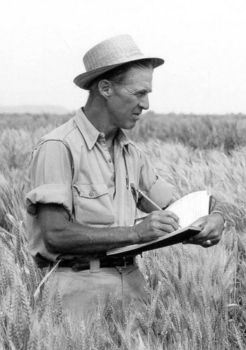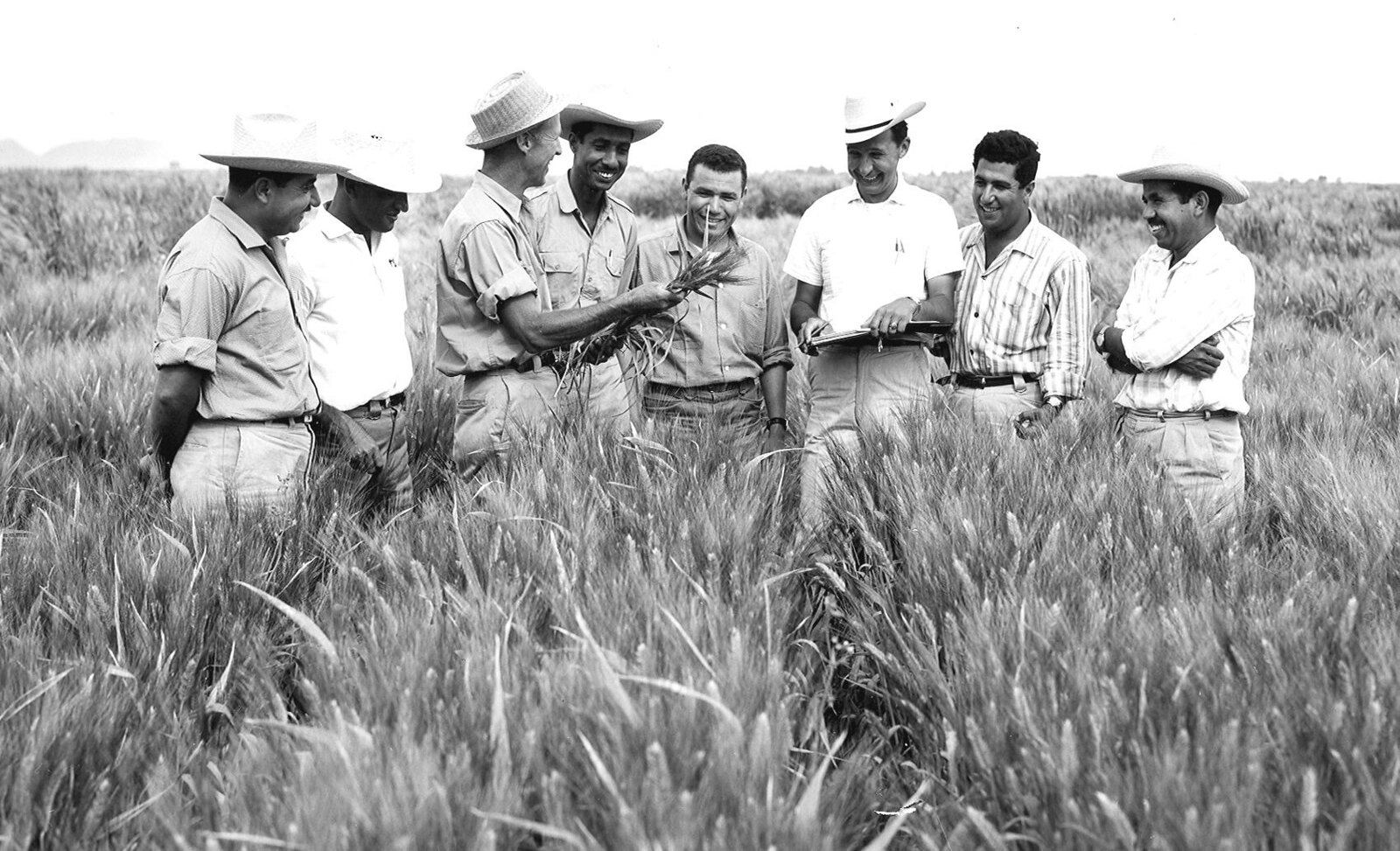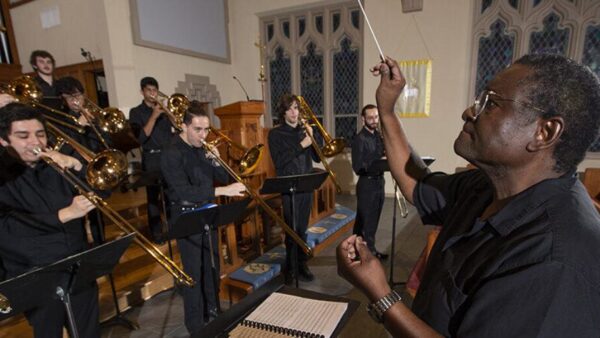
The Borlaug Legacy: Helping Feed The World

From researchers and teachers to farmers and distributors, many hands take part in helping ensure that people not only have food on their tables, but that food systems offer affordable and nutritious diets.
Today, as the Food and Agriculture Organization of the United Nations celebrates World Food Day, Texas A&M University honors the food heroes who have brought sustenance and nourishment to those most in need.
Although Texas A&M and Texas A&M AgriLife can proudly claim many alumni and faculty who have made an impact on world hunger through agricultural innovation, none stands as large as Norman Borlaug, former distinguished professor of International Agriculture at the College of Agriculture and Life Sciences and namesake of The Norman Borlaug Institute for International Agriculture. Borlaug is one of the most influential food heroes in world history.
Through his dedicated research, Borlaug perfected a dwarf wheat variety that was both durable and prolific in production. With the planting of this wheat, it is estimated that his groundbreaking work helped to save more than a billion lives worldwide.
Borlaug, known as the father of the Green Revolution, was awarded a U.S. Presidential Medal of Science, U.S. Congressional Gold Medal, and the Nobel Peace Prize for his revolutionary humanitarian efforts that paved the way for today’s food as we know it.
Borlaug was determined to make a difference and could be found working in the fields alongside farmers, students, interns and researchers. He made it is his life’s mission to help feed the world. By developing improved grain varieties, Borlaug was able to help farmers around the globe feed more of the world’s population.
His legacy of “seeding” agricultural production around the world still resonates today, as the Borlaug Institute implements programs in developing countries worldwide. Embracing his spirit, the Institute follows the seven elements of the Borlaug legacy: prevent conflict by addressing poverty and hunger, employ agriculture science to address poverty and hunger, take it to the farmer, engage in an interdisciplinary approach, encourage effective governance and sound policies, promote youth development, and act more and talk less.
Fighting hunger and poverty together and fulfilling Borlaug’s legacy, the Borlaug Institute is bringing more food to the world by utilizing applied research and training programs from production to consumption in small-holder agricultural communities of the developing world. The Institute engages with people from a variety of areas of expertise — not just crop and animal production, but also environmental sustainability, food safety, nutrition, education, entrepreneurship, and public policy.
“We engage producers, small-holder farmers, in a value-chain approach, helping them identify and then improve production of specific agricultural products for which there is a market,” said Elsa Murano, director of The Borlaug Institute. “It could be horticulture crops that are of high value, such as coffee or peppers. It could be livestock and livestock-derived products.
“Focusing on such an approach helps elevate them out of poverty,” she said. “When you elevate someone out of poverty, you elevate them out of hunger as well because they are now able to afford things that they do not necessarily produce. They are also able to buy medicines for the family or send the kids to school. It really provides them with a hope and a future, and it begins with agriculture.”

“Food is the moral right of all who are born into this world.” – Norman Borlaug
“Dr. Borlaug believed in action. He was all about getting things done,” Murano said. “So, through perseverance and action, we continue his legacy.”
This is evidenced through a project sub-Saharan Africa where farmers are using mathematical models created by Texas A&M AgriLife faculty to help pinpoint when they should irrigate their crops. The models look at what crops are being grown, soil conditions, ambient temperatures, the source of water and method of irrigation so that production is as efficient and as sustainable as possible, Murano said.
This project, known as the Feed the Future Innovation Lab for Small-Scale Irrigation, focuses on helping small-holder farmers in the continent increase profitable, sustainable and gender-sensitive irrigation to support inclusive agricultural growth, resilient food systems and nutritional health outcomes.
Another project the Borlaug Institute has been conducting in Central America focuses on coffee, introducing a variety that is resistant to a fungal disease known as “coffee leaf rust.” The disease had been wiping out farmers’ crops, effectively forcing them to migrate.
“Now after only three years, because this variety of coffee grows faster and produces more beans per plant, the farmers have told us, ‘I can afford to support myself and my family now, I don’t have to leave,’” Murano said.
The Borlaug Institute has taken the motto of “Act more, talk less” to heart. Within each project, the institute takes a look at what will help the people and communities most, what will help elevate them out of poverty and hunger, the best and most efficiently.
“We want more than anything, when the project is over, for them to be off and running, to not need us anymore. For them, it is truly a journey to self-reliance,” Murano said. “Our motto at the Borlaug Institute is this: Life is short, do things that matter. Dr. Borlaug certainly taught us that helping alleviate hunger around the world indeed matters.”
This article by Laura Muntean originally appeared on AgriLife Today.


